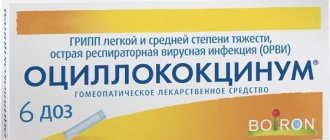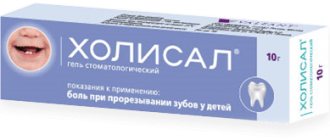Most pediatricians and pediatric neurologists believe that children need valerian in exceptional cases. If a child behaves well during the day, but every evening he starts crying and screaming for no reason, the reason is most likely not in the weakness of his nervous system. In this case, instead of sedatives, it is better to resort to distracting and relaxing procedures. But if the baby has suffered stress or has an unbalanced psyche, a sedative drug will come in handy.
Instructions for use and dosage
Homeopathy has recently become a popular method for treating various nervous system disorders.
Moreover, herbs, unlike synthetic and chemical drugs, do not have such a harmful effect and do not cause so many side effects.
Herbal remedies should be used correctly.
Instructions for use recommend following the recommendations when using valerian for children:
- It is recommended to give the tincture in drops to a one-year-old child. This remedy is given for up to three years.
- When taking the drug in the form of drops, the dosage depends on age. At 2 years old - 2 drops, 3 years old - 3 drops, 5 years old - 5 drops and so on.
- When taking drops, it is better to first dilute them in a small amount of water. The fact is that this form of medicine has an unpleasant taste, and the child simply will not want to drink it in its pure form.
- It is recommended to take the tincture in the form of drops no more than 4 times a day.
- Children over 3-4 years old are given valerian tablets. Many doctors advise starting to take this form from the age of 4.
- Valerian tablets should be given in accordance with the instructions for use, and you should also consult your doctor first. Children should be given 1 tablet before eating.
- The tablets must be taken twice a day. During administration, they are washed down with a sufficient amount of water, this will make it easier to swallow the tablet.
- The pills should be taken in a regular course. Your doctor will be able to tell you how much to drink and a detailed dosage regimen.
Infants can inhale at night. In this form, valerian also has a calming effect. You can place a cotton ball with a drop of tincture next to the crib or hang a bag of dry herbs.
Baths with decoction or tincture have a good effect. 1 large spoon of dry herb is poured into a glass and filled with hot water. The finished broth is poured into a bathtub with warm water. The child should be given a bath. After this procedure, the body is thoroughly dried and lubricated with baby cream.
At what age and how can valerian be given to children: dosage
Be that as it may, among the many sedatives, valerian is truly one of the most gentle.
And although not all doctors approve of its use (among them is the famous pediatrician Evgeny Komarovsky - he believes that valerian therapy produces a placebo effect and calms mainly not children, but parents), still many parents give valerian to their children. Moreover, they assure that they observe a positive effect of the drug on the children's nervous system. Of course, you should always consult your doctor before giving your child any medicine. But ultimately, the decision is still up to you.
If you are not against valerian and are ready to try its effect on your baby, then be sure to consider at what age it can be given and how it should be given.
Is it possible to give valerian tincture to children?
Valerian tincture is a herbal preparation infused with ethyl alcohol. It is the latter component that is contraindicated for internal use in newborns and children under one year old. This category of patients, if there is such a need, can receive valerian through mother's milk, that is, it is acceptable for a nursing mother to take the drug, but it is better in tablets.
As for valerian tincture for newborns, it can also be used in this way: moisten a cotton swab with it and place it near the crib, or place a freshly prepared valerian decoction.
Is it possible to give a child valerian tablets?
The instructions indicate that valerian tablets are contraindicated for children under 12 years of age. Starting at this age, older people can be given one valerian tablet twice a day before meals. The child must take the tablet with a sufficient amount of water (at least 100 ml).
However, pediatricians say that valerian tablets can be given to children starting from 3-4 years old. But in this case, you should definitely consult a doctor!
However, regardless of the child’s age, first of all, the mother must objectively assess whether there really is a need for a sedative, even such a “simple” one.
Valerian drops vs valerian tablets
In order to answer this question, it is necessary to compare not only the alcohol tincture of valerian with the yellow film-coated tablets that are familiar to us, but also with the “dark” tablets
, without the usual yellow shell. The main evaluation criterion is, of course, the speed of the drug’s effect on the human body.
The palm in this unique competition goes, of course, to valerian in the form of a tincture, which is not surprising: the medicine in liquid form is absorbed much faster
. In second place in terms of the speed of absorption of the drug, we can safely put “dark” valerian tablets, since the body does not need time to absorb the tablet shell due to their absence.
Yellow valerian tablets are the slowest to digest. Thus, they can be called the “weakest” in terms of impact. They can be called weak purely conditionally - they will simply begin to act later
than tincture and “dark” tablets. Of course, the dosage of the drug is of utmost importance, but we assume the same doses of the active substance.
Magone/Getty Images
It is also worth considering such a parameter as the safety of valerian. Despite the low likelihood of side effects in the absence of an overdose, it is worth noting that they are most likely to occur when taking valerian tincture
and “dark” tablets. The tincture itself is less safe, since it contains alcohol; and “dark” tablets are less purified, since they are made not from extracts, but from the pure pressed root system of the plant.
Finally, yellow valerian tablets are the safest. Despite the fact that valerian is not recommended to be taken during lactation and pregnancy, even pregnant women can most easily accept
this particular drug. In addition, the composition of such tablets may imply the presence of components that make this type of valerian as safe as possible when absorbed by the body.
However, in 1998, Belarusian specialists proved that it is not yellow and “dark” tablets, or even valerian tincture, that are most effective, but the raw material itself in crushed form
(that is, finely ground roots and rhizomes of the plant). The effectiveness of valerian in this form exceeds the effectiveness of tablets made from the extract of the root system of valerian by two and a half times!
By the way, it was the Belarusians who proposed their original method of grinding plant materials, which involves preserving volatile substances
contained in the roots and rhizomes of the plant. They also proposed the optimal composition of the resulting tablets, which meets the needs of our body.
The benefits of valerian for a child
In medicine, the roots of the plant are used, which contain many essential oils, as well as micro- and macroelements.
Valerian is available in the form of tinctures, tablets, and also as a dried herb.
The main medicinal properties of valerian :
- Has mild sedative properties;
- Has an antispasmodic effect;
- Has a beneficial effect on sleep, as well as on the functioning of the cardiovascular system;
- Helps stimulate digestion and regulate metabolism;
- It has a general strengthening effect and also tones well.
Valerian for a one-month-old baby without negative effects on the body
TO
As in the case of infants, the tincture is contraindicated for a month-old baby without a doctor’s permission. The baby’s body is not sufficiently prepared for such substances and may try to reject it. Valerian has a cumulative effect, the tincture should be taken in a course. The baby may simply be poisoned by such an amount of medicine that it will negatively affect the further development of the child. But if there are indications for the use of valerian, it can only be given with restrictions, without exceeding the permissible dose, using the required dosage form. Self-prescription of the drug is possible only once, under certain circumstances.
Is it permissible to give the drug to a baby?
Valerian tablets and tincture are strictly forbidden to be given to infants. The tablets are not recommended for use in young children, since they are not able to chew them, and the tincture contains ethyl alcohol, which is contraindicated for children under one year of age. If the child still needs to be given valerian, the mother should take it and then breastfeed the baby. This way the baby will receive a relatively safe dose of the medicine.
Another way to use medicinal herbs is aromatherapy. A small piece of cotton wool soaked in a tincture or decoction of the plant is placed near the head of the crib. The essential oils contained in the herb evaporate and have a beneficial effect on the baby’s nervous system.
When is valerian indicated for children?
Valerian can be prescribed to children as a remedy to relieve symptoms of nervousness. However, only a doctor can determine this. For parents to make such a serious decision on their own is, to say the least, irresponsible. In general, this medicine is far from harmless, and children can be prescribed only as a last resort, and only for a single dose. Let's consider cases when a specialist can prescribe valerian to children.
- Restlessness, increased physical activity, tantrums following one another, tearfulness.
- Obvious signs of neurosis: sleep disturbances, headaches, refusal to eat, sudden changes in mood, activity gives way to lethargy and vice versa.
- Insomnia, or short periods of sleep followed by longer periods of wakefulness.
- Loss of appetite.
- Tachycardia.
- Violent expression of emotions, unreasonable changes in positive and negative emotions, unexpected outbursts of aggression.
- Headaches not associated with a cold or ARVI.
- Frequent tantrums.
- The doctor may prescribe valerian for children in some cases of allergies.
- Stomach or vascular spasms.
Observing some of these symptoms, parents, without much thought, give valerian. Of course, it will have a temporary positive effect, but what then? Where is the guarantee that after taking valerian in children, various manifestations of neuroses will not worsen? It is no coincidence that the question is raised whether it is possible to give valerian to children. The drug has a number of contraindications.
Valerian is available not only in the form of traditional tablets or alcohol infusion. It is included in many medicinal preparations and even dietary supplements. Most pediatricians are against alcohol tincture because of the alcohol content in it, but there are also supporters of this dosage form. The latter are guided by the instructions, which say that it can be given to children over 1 year old. The instructions for the tablets indicate that they can only be given from 4 years of age, for herbal tea - from 1 year.
Absolute contraindications to taking valerian are:
- Age up to 1 year;
- Kidney inflammation;
- Diseases of the gastrointestinal tract;
- Individual intolerance to the drug;
- Combination with sedatives.
If parents neglect these instructions, the baby’s condition may worsen. Valerian can cause the following conditions:
- Drowsiness that lasts all day, even if the child slept well at night and during the midday nap;
- Lethargy, reluctance to play, move, walk;
- Decreased performance in a schoolchild;
- If you take the drug repeatedly over a short period of time, constipation and allergic urticaria may appear;
- There is an opinion that taking valerian in childhood can cause developmental delays, as it reduces the child’s activity and suppresses keen cognitive interest.
Dear parents, think carefully before giving valerian to your children and study the instructions.
Can children under 1 year of age take valerian?
In infancy, the intake of remedies from this sedative medicinal plant is limited. Children are allowed:
- A warm bath to which 2 drops of tincture or a self-made decoction of dry valerian root purchased at the pharmacy are added. To prepare a decoction, pour a tablespoon of plant material into 1 tbsp. boiling water and leave for 30 minutes. Before adding to the bath tub, the broth must be filtered through 2 layers of gauze.
- Dry inhalations. Valerian purchased at a pharmacy is placed in a cloth bag and sewn up, and then placed near the crib. However, if the baby has an allergic reaction to this herb, such therapy should be stopped.
If the child is breastfed, this sedative in tablets or drops must be taken by the mother, then the baby will receive it through breast milk.
Contraindications
An absolute contraindication for a child is the presence of an allergy or individual intolerance to valerian. It is also unacceptable to take this drug if the baby has problems with the heart, kidneys or gastrointestinal tract.
If the child is prescribed other sedatives, a pediatrician should be consulted about the possibility of combining valerian with them.
Side effects and contraindications
Failure to comply with dosages may result in side effects. Among them:
- lethargy – the child will constantly want to sleep;
- decreased brain activity – low concentration, difficulty learning;
- allergic reaction - rash all over the body;
- depression.
Valerian is a medicinal herb. Here are the categories of patients it is contraindicated for:
- under the age of 1 year (internal use is prohibited);
- with inflammation of the kidneys;
- with severe stomach or intestinal diseases;
- with allergies or individual intolerance to grass.
If your child is being treated with other sedatives, talk to your doctor about taking valerian. She can neutralize their actions.
One rule will help you avoid negative consequences. If you are giving your baby valerian for the first time, start with a dose 5 times less than the instructions and wait 40 minutes. Take an interest in the well-being of your son/daughter. If you experience abdominal discomfort, rash, headache, or nausea after taking it, choose another plant.
Overdose
When taking valerian, you should carefully follow the dosage, otherwise the effect of this remedy may be unpredictable.
Especially if it is used for children. It is better to start drinking it with small dosages, gradually approaching the recommended one.
Important ! Do not give valerian to a child if he has an allergic reaction to this remedy. When taking this drug, he may experience severe headache, nausea, and disruption of the digestive system. In this case, it should be replaced with the safest product.
Overdose can occur if dosages are not followed. But unpleasant symptoms are usually not very pronounced, and patients often simply do not notice them.
To suspect that a child has an overdose after drinking valerian in a higher dose, the following signs will help:
- Nausea.
- Heartburn.
- Flatulence.
- Manifestation of diarrhea.
- The child may be sleepy or, on the contrary, may be overexcited.
- Pupil dilation.
- The appearance of hand tremors.
- Dizziness.
- Signs of general weakness.
- Loss of strength, decreased ability to work.
- Decreased or increased blood pressure.
- Decreased heart rate.
- Decreased concentration.
- Headaches that may resemble migraine attacks.
Valerian for children: benefit or harm?
Nowadays, restless behavior of children is common: they cry to attract attention, get rowdy at night, and have hysterics. Parents do not always have the patience and nerves, so there is a desire to reassure, give some medicine, for example valerian
Valerian is a folk remedy considered harmless and safe. But sometimes parents don’t think about whether it’s possible to give it? Is it useful or harmful? After all, this is a herbal tincture, what danger could there be? Let's try to figure it out together. Valerian has In addition to its benefits, it causes harm: valerian can cause allergies, a reverse reaction, there are contraindications. Valerian is taken internally and externally. To lower blood pressure using aromatherapy. They take hot baths to get rid of insomnia and nervous stress.
Advice
The feasibility of using the product in children
Only a doctor can determine whether a child needs valerian after examining him and conducting the necessary tests and examinations. The presence of indications does not always mean that the baby should be treated with valerian. In some cases, it may be ineffective or contraindicated for other reasons. Valerian, in addition to the well-known ones, has a number of rather specific contraindications that are easy to ignore for a person who does not know all the medical nuances.
At the same time, valerian is sometimes considered as an alternative to potent synthetic drugs with a sedative effect. The possibility of such a replacement was confirmed by the results of a study conducted in 2002 by scientist S. Hintelmann and his colleagues. The trial involved about 100 children aged 6-12 years with increased anxiety, nervousness and sleep disorders. After a month of treatment, the condition improved in approximately 90% of children.
The effectiveness of valerian is noted only with long-term regular use. The course of treatment can last from 2 to 4 weeks. Taking the medicine for a shorter period of time is not advisable, since its properties are fully manifested only when the active substances accumulate in the body.
A single dose of valerian has little effect. The child may calm down slightly or not react at all to taking the medicine. In rare cases, valerian has the opposite effect and may not calm, but, on the contrary, excite. Thus, giving your baby valerian during hysterics or violent games does not make sense. This will bring little benefit, but may cause side effects.
In case of hysterics or severe crying, you do not need to give your child either valerian or any other sedative.
Indications for the use of valerian include attention deficit hyperactivity disorder. This is a diagnosis made based on the results of clinical examinations. However, it is popularly attributed to almost all children who are active and do not want to play quiet games or do one thing for a long time. This behavior does not at all indicate that the child has ADHD and does not mean that he needs to be given valerian.
Very often, active or capricious children do not need sedatives at all. For children two to three years old and even older, the correct daily routine is very important. After a nap, they need active games and walks in the fresh air, during which they can throw out their energy. A few hours before bedtime, it is advisable to organize the child’s leisure time so that he gradually calms down. After dinner, you can read a book to him or let him draw. Having relaxed, the baby will be ready to sleep. It is undesirable to turn on cartoons or allow your child to play virtual games, as they excite the psyche and, accordingly, prevent timely falling asleep. If your baby eats sweets before going to bed, he will also not want to sleep. To calm your child before bed, you can give him a warm bath, followed by a light massage.
In this video, Dr. Komarovsky explains how to normalize children's sleep:
Indications for use
- Hyperactivity and increased excitability. A child with such peculiarities of the nervous system experiences difficulties in learning, he often cries and screams, creates a lot of noise, and cannot sit still for a long time;
- Poor appetite. The child eats poorly or refuses to eat at all, goes overboard with food;
- Insomnia or restless sleep. At the same time, the baby experiences difficulty falling asleep even if he has moved a lot throughout the day. Sleep is short, the child often wakes up and cries;
- Cardiopalmus;
- Spasms in the gastrointestinal tract.
Medicines are a very quick and convenient way to help your child. But do not forget that they all have contraindications. And valerian is no exception.
Properties, composition and release forms of the drug
The pharmacological industry in Russia offers several dosage forms of valerian. Their action is based on a mild sedative effect. The drugs slow down the heart rate, dilate blood vessels, and help you fall asleep after an eventful day. They have a cumulative effect. Release forms:
- Tincture - when making it, ethyl alcohol is added to the crushed roots of the medicinal plant. The finished valerian extract is a red-brown liquid. It has a characteristic odor and a bittersweet taste. Children are allowed to use in diluted form from the age of one year.
- Herbal tea - presented in bulk form or placed in filter bags that include crushed valerian rhizomes. Indicated for babies over one year old. Based on dry crushed raw materials, you can prepare a water tincture or infuse the roots with alcohol.
- Tablets are small, round, yellow tablets. 1 tablet contains 20 mg of valerian rhizome extract and auxiliary components (gelatin, starch, other compounds). Tablets are prescribed to children aged 3 years and older.
Preparations based on valerian root - Corvalol, Valocormid, camphor-valerian drops. They are indicated for stress, neuroses, tachycardia, spasms of coronary vessels and other ailments.
In what cases is the use of valerian contraindicated for children?
Valerian tablets and infusions are strictly prohibited for newborns and infants. The tablet form is allowed from 3 years of age and is used when children can already swallow and drink pills on their own. The tincture contains ethyl alcohol, which is undesirable for children under 3 years of age. If the doctor has prescribed a sedative for the baby, the mother should drink the drug, and its components will enter the baby’s body with milk.
Medicines based on valerian are natural, but they are not suitable for all babies. Contraindications for use:
- diabetes mellitus (for tablets whose shell contains sucrose);
- individual intolerance to components;
- lactase, sucrose deficiency (for tablets);
- chronic enterocolitis;
- kidney inflammation;
- parallel use of other sedatives.
Contraindications and possible risks
Contraindications for different valerian preparations may vary slightly depending on the composition and the presence of additional components. Some products add motherwort, vitamin B6 and other substances. You can find out the full list of contraindications in the instructions for the medicine.
Contraindications to the use of valerian in children and adults are:
- Age up to 3 years;
- Allergy to the plant or other components of the drug;
- Atherosclerosis;
- Heart attack and stroke;
- Inflammatory diseases of the liver, kidneys, intestines;
- Inhibition of the functions of the central nervous system as a result of the disease.
It is also not recommended to take valerian while breastfeeding, since the drug can penetrate into mother’s milk and pass along with it to the newborn baby. According to neonatologists, it is strictly forbidden to use the product for nursing mothers in the first months of the baby’s life, as well as if the baby was born prematurely or with low weight. Accordingly, in these cases the drug should not be given to the baby either. Even a slight sedative effect can be extremely dangerous for his nervous system.
You should not take valerian together with other sedatives and hypnotics, because it can enhance their effect and provoke an overdose. Its compatibility with other medications should also be checked with specialists.
Side effects of valerian are:
- Allergic reactions, which can manifest as redness, rashes on the skin, runny nose and cough;
- Nausea, vomiting, constipation, or diarrhea.
- Lethargy, inattention;
- Nervous agitation, sleep disturbances, insomnia;
- Severe decrease or increase in blood pressure;
- Lethargy and drowsiness;
Given these side effects, giving valerian to a child in most cases is not at all wise.
If any side effects occur, the baby should be shown to a doctor. Children endure such conditions much more severely than adults.
The risk of side effects increases if valerian is used incorrectly and dosages are exceeded. An overdose can occur if you take a large dose of the medicine at one time or during the day, as well as if you take it regularly for a long time.
As a result of an overdose, severe intoxication of the body can occur, which is accompanied by vomiting, diarrhea and other symptoms. Loss of consciousness, heart rhythm disturbances, and decreased breathing rate are also possible.
If the baby himself ate valerian tablets or drank a tincture or decoction, he should be taken to the hospital. For young children (under 6 years old), even 2-4 tablets taken at a time can cause an overdose. The clinic can perform gastric lavage and provide other necessary assistance. Despite the fact that valerian can provoke a number of serious side effects, not a single death associated with its use has been recorded.
In any case, a doctor should prescribe valerian to children. It is impossible to use medicine without indications if the baby is capricious, refuses to go to bed or wakes up at night. Valerian does not solve the problem, but only hides the symptoms. At the same time, it can cause harm to the baby’s health. When deciding to give your child valerian, you need to understand that for serious illnesses it is ineffective, and its use in the absence of indications is not advisable. Very often, when the question is whether a baby needs valerian, you can actually do without using it.
Possible side effects
Very often, valerian can have the opposite effect to what was expected. Phenomena such as crying, screaming, even more severe anxiety and excitability may appear. This reaction usually occurs in young children and usually goes away with age. Increased excitability is not the only side effect that valerian can cause.
This drug should be given to children with great caution. Since the product can cause a very strong allergic reaction (redness, swelling, rash, irritation), which can pose a serious threat
You should know that uncontrolled use of valerian can cause nausea, headaches, constipation, colitis, and disruption of the entire digestive system. Some doctors believe that if a remedy such as valerian is given to children for a long time, this leads to developmental delays. They motivate this by the fact that the drug reduces brain activity, which stimulates the development of the child. However, any sedative can have this effect. This theory has not been fully studied or proven, but it is not without foundation. It has long been noted that very active children are much better developed than passive peers.
Valerian tablets
Valerian tablets are small, flat and coated. The package contains 50 tablets. The benefits and harms of the tablets mostly coincide with other valerian-based drugs and largely depend on the accuracy of following the instructions.
Composition of valerian tablets
The active ingredient of the drug is thick valerian extract. The standard content of the substance in 1 tablet is 20 mg, but depending on the manufacturer, there are dosage options from 10 to 50 mg. Potato starch, basic magnesium carbonate, gelatin and talc are used as excipients.
For the tablet shell, along with the listed components, small amounts of paraffin, beeswax, titanium dioxide, refined sugar, quinole yellow, aerosil and sunflower oil are also used.
Benefits for the human body
Thanks to the unique combination of a number of substances, valerian is primarily known for its mild hypnotic and sedative effect. The tablets have a slight inhibitory effect on the central nervous system and brain cells, slow down the heart rate, relieving nervous excitement and helping to sleep (https://otzovik.com/review_4253585.html).
Other beneficial properties of valerian include:
- choleretic effect;
- dilatation of coronary vessels (vascular blood flow improves, the load on the heart decreases);
- increased secretion of gastric juice;
- lowering blood pressure;
- mild analgesic effect;
- regulation of cardiac activity.
Valerian enhances the effect of antispasmodic and cardiac stimulating drugs, which increases the effectiveness of treatment of heart diseases, as well as pathologies of other organs characterized by painful spasms.
Indications for use
Valerian tablets are used to treat and prevent the following conditions:
- increased anxiety;
- nervous excitement;
- high blood pressure;
- stress;
- migraine;
- insomnia.
As part of complex therapy, valerian helps treat disorders such as:
- pain in the gastrointestinal tract;
- diseases of the genitourinary system (urolithiasis, cholecystitis);
- exacerbation of symptoms of vegetative-vascular dystonia;
- mild deviations in the functioning of the heart and vascular system.
Valerian tablets are usually prescribed to adults and children over 12 years of age. At a younger age, valerian is also used to treat sleep disorders and relieve increased excitability, but the concentration of substances in tablets is considered unacceptable and is prescribed in exceptional cases. An aqueous infusion of the plant's roots or tincture is most often used.
Contraindications
Valerian tablets are contraindicated in the following cases:
- hypersensitivity to the components of the drug;
- depression and other conditions characterized by depression of the central nervous system;
- mental disorders and serious disorders of the nervous system;
- low blood pressure;
- work that requires increased concentration.
The drug is used with caution when:
- pregnancy and breastfeeding;
- work requiring increased concentration;
- diabetes mellitus;
- liver failure;
- driving a car;
- children under 12 years of age.
In such cases, it is necessary to consult a doctor who will select a suitable treatment regimen or prescribe another form of valerian release.
Side effects
Harm from valerian tablets is possible if the drug is used without a doctor’s prescription, if there are contraindications and if the recommended dose is not followed. The following body reactions are possible:
- lowering blood pressure;
- slow reaction, lethargy;
- allergy to the components of the drug.
It should also be taken into account that when valerian is combined with other sedatives, the calming effect of the drugs is cumulative, having a high inhibitory effect on the central nervous system. Combining the drug with alcohol has the same effect. In case of chronic overdose of the drug, symptoms such as:
- constant drowsiness, lethargy, state of indifference;
- decreased clarity of vision;
- spasms in the stomach and intestines;
- nausea and vomiting;
- constipation;
- hand trembling;
- bradycardia or arrhythmia.
If you have symptoms of an overdose, you should stop taking valerian, take absorbents (magnesium sulfate, activated carbon) to reduce the absorption of the drug in the intestines, and if you have dyspeptic disorders, perform a gastric lavage.
No long-term negative health changes have been observed with the use of valerian.
Can a small child take valerian or not?
The roots of this plant have a healing effect. It has a calming effect. After taking a remedy prepared on the basis of valerian, the nervous system relaxes, and crying and hysteria imperceptibly “disappear.” But the use of this drug as a sedative for a baby also has a downside:
- small children become lethargic and lethargic after taking valerian;
- stop perceiving information, because brain activity freezes for some time.
Therefore, without consulting or prescribing a pediatrician, it is allowed to give the child this herbal remedy only once to calm him down. It won't do much harm. But you should remember that you cannot prescribe systemic treatment to your baby on your own.
Bathroom exercises for babies
Bathroom exercises for infants are very useful for muscle development and strengthening the immune system.
You need to fill a large bathtub full of water, preferably 36 degrees, and immerse the baby in it. Place him on his back and hold the baby's head with both hands. We hold the back of the head with one hand, and the other hand lies on the neck and touches the chin. We do the exercise of sliding through the water backwards, you need to do this 10 times.
This exercise strengthens the collar area.
The next exercise is pushing off with the legs from the edge of the side of the bathtub - the child pushes off, slides to the other edge and pushes off again. This exercise strengthens the muscles of the legs.
Next is walking and jumping in the water. We hold the baby by the back and grab the chest, and the baby should touch the bottom of the bath and make small jumps, as if skipping. This exercise perfectly strengthens the baby’s feet and protects against flat feet. You need to perform these exercises every day when swimming and gradually lower the water temperature to strengthen your immune system!
Every mother has faced such a problem as excessive moodiness and poor sleep in a child. These are common phenomena in childhood due to the immaturity of the nervous system. Often in such situations, experts recommend bathing the child in a decoction of soothing herbs. Bathing in the bath helps relieve nervous and muscle tension and sets the child up for a restful sleep. In addition, many herbs have additional properties that have a positive effect on the functioning of human internal organs and systems.
Bath with valerian
Valerian for newborns can only be used externally. Hyperactive children are prescribed baths with valerian decoction before bedtime. They have a beneficial effect on the nervous system, have a calming effect on the baby’s skin during irritation and diaper rash, and heal minor injuries.
How to prepare a bath?
To prepare, take 3 tbsp. 1 liter of dry root, pour 2 liters of water, bring to a boil and leave to infuse for an hour and a half. Strain the finished broth and add to the bath. Bath your child for no more than 15 minutes. Valerian can be drying, so after a bath you need to lubricate your baby's skin with baby cream.
You can bathe in a bath with a soothing herbal mixture, which, in addition to valerian, includes motherwort, chamomile and thyme. Before use, you need to try the herbs separately, adding a decoction to the bath. This will help check the baby’s reaction and exclude the allergen from the collection.
Valerian tablets for children - brief instructions for use for mothers
Valerian tablets - instructions for use for children - a brief summary of the use of a natural component in the treatment of childhood nervousness, anxiety, and mental perception disorders.
Pharmacology
The largest amount of useful substances is found in the roots of a two-year-old plant, so the procurement and preparation of medicine from valerian is carried out during the off-season in order to preserve the healing properties of the raw material as much as possible.
Valerian officinalis extract can increase the secretion of bile, which is beneficial for digestive disorders and diseases of the biliary tract. Essential oils of the plant have a beneficial effect on the nervous system, reducing excessive excitability. Consumption of valerian promotes vasodilation, calms the heartbeat, has a relaxing effect on smooth muscles, and slightly lowers blood pressure.
- stimulation of the secretory function of the digestive organs;
- increased bile secretion;
- decrease in heart rate, normalization of heart function;
- expansion of the lumen of blood vessels.
Indications for the use of valerian in the treatment of children
The need to prescribe valerian tablets for treating a child, as well as adjusting the dosage of the drug, are determined by the treating pediatrician after a full examination and a comprehensive study of the baby’s condition.
Possible complications
Pediatricians sometimes prescribe this herbal medicine to relieve nervousness in a child, but such situations are rare. This is due to the ability of the medicinal plant to cause the development of consequences dangerous for the child’s body:
- in clinical practice there are many cases where products prepared on the basis of valerian caused severe allergies;
- a tincture from this medicinal plant is prepared with ethyl alcohol, and it has a negative effect on children’s livers, which are not yet ready to process ethanol;
- a child with a disease of the digestive system may develop undesirable side effects - increased gas formation, vomiting;
- It is unlikely, but sometimes an overdose of the drug occurs, which leads to the development of vascular spasm;
- there is a high probability of accumulation of valerian in the body, since in children the process of eliminating drugs is slowed down;
- sedatives reduce activity and inhibit the functioning of the nervous system, so long-term use of valerian can cause developmental delays in a child;
- The reaction of the child's body to valerian medicines is different, so in some children, after taking a sedative, the opposite effect occurs, that is, excitability increases.











